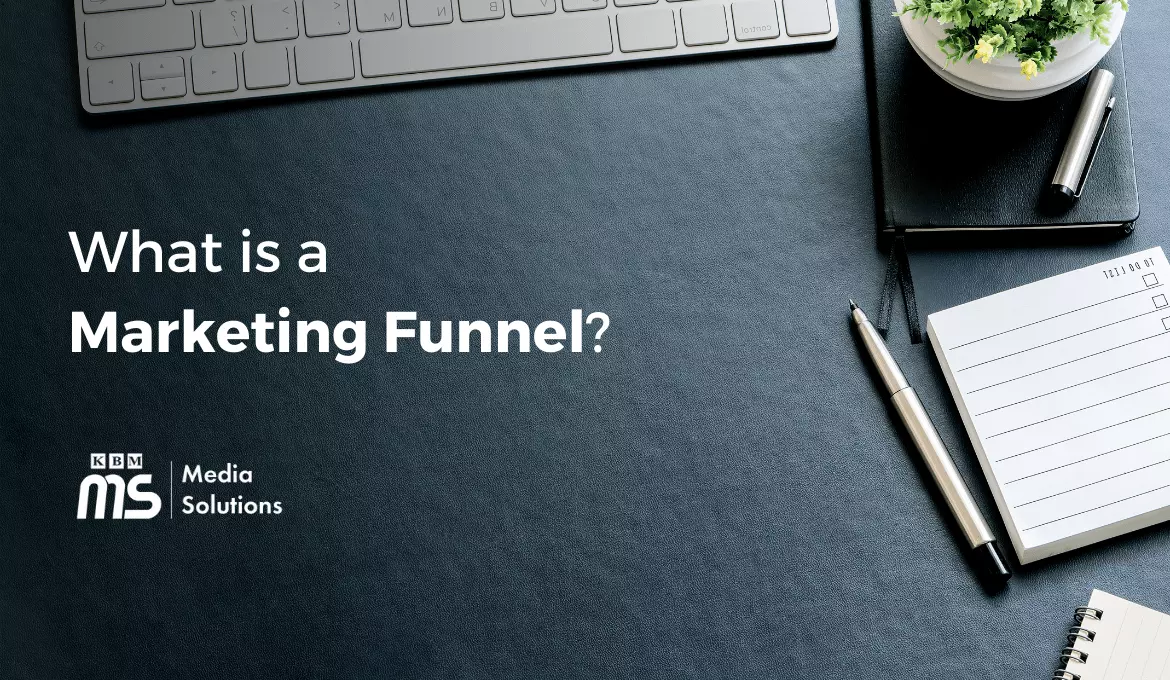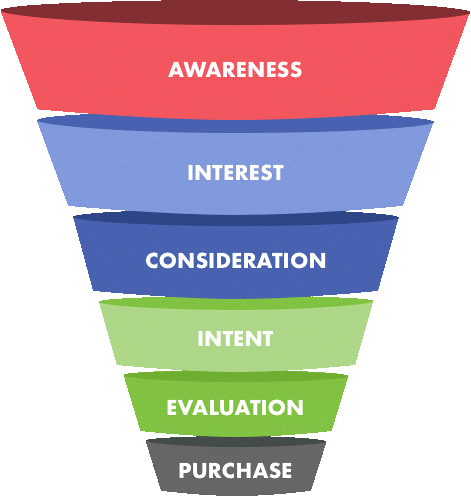What is the Marketing Funnel?

Posted on Aug 24, 2021
The marketing funnel is a visualisation of understanding the framework where leads are converted into customers. This resonates not just in marketing but also sales where these conversions take place either through marketing or sales efforts. The idea is that marketers strategize their advertisement and promotional plans in a way that targets their potential customers, then the prospects decide whether they would make a purchase of the product/service. The goal of the marketing funnel is to induce a need even if there isn’t through planning a flowchart of consumer’s decision making which ultimately directs the customer into buying the product. So the visualisation starts off with a broader plan which is intended for ideal consumers which further narrows the potential/leads into customers.

The figure above is a graphical representation of a marketing funnel, for every business, their funnel marketing plan would vary since their customer base and needs would be different. It contains a series of interactions between the customer and the company after which the customer from being a complete stranger becomes a loyal customer.
Each stage of the marketing funnel involves the following:
- Awareness
Someone comes across your business offer or ad, for example, an advertisement on Facebook
- Interest
Once they become aware and familiar with your offering, this may develop an interest that would make them want to know more about you. For example, downloading a guide.
- Evaluation
In this stage, the potential customer decides whether they would be willing to make the purchase or not. They find credibility in your offerings. For example, checking for reviews by past customers.
- Trial
After doing the evaluation, they decide to make the purchase since they find you trustworthy. As if you can solve their problems. This is the reason they are ready to do business with you.
- Adoption
At this final stage, customers going through the experience of interaction and purchasing the product/service decide whether they would want to do business with the company again.
It is crucial to understand how time impacts your marketing funnel. You don’t want to bombard your customers with information and to confuse them as soon as they express interest in your offerings. It might be enticing to show what you’re capable of and businesses do that. This isn’t the best practice because customers need time to digest information and to proceed accordingly.
So when customers show interest in your offerings, be patient and share information that will be absorbable and can be evaluated, let customers find out what they want to know and not what you want them to know. If they like what they read, then they would be able to evaluate you more easily.
Another factor when using funnel marketing is to identify whether you’re connecting customers with the right information. For example, if customers are exploring your website what information must be provided? You can connect customers through having a good digital presence, to find out how visit https://www.kbmmediasolutions.com/blog/how-to-improve-your-digital-presence.php Case studies that can be digested within 5 minutes would be useful since customers want important information only.
What benefits can be found from Marketing Funnels?
Understanding customer journey
With the help of marketing funnels, managers can understand the customer’s journey from top to bottom, until they make a purchase. Marketers can utilize the funnel to create effective marketing plans to target customers at different stages of the marketing funnel with more precision.
Application of Marketing funnels
They are not just applied to the decision-making process of a customer but their application can be vastly used in any of the actions that may cause conversions. (emailing, social media, calling etc.)
Optimisation
Marketing funnels allow you to create content that is tailored towards a specific customer group, and what stage the customer is currently on. This allows marketers to make the journey of their customers more personalized and to deliver value to them more intimately.
What Marketing Funnels should focus on Achieving?
A one-time purchase isn’t enough for businesses to continue for growth. It needs to plan its marketing funnel in such a way that it focuses more on the retention of customers. Simply to build a relationship between the company and the customer. Having loyal customers mean that after making a single purchase and being delighted with the experience and use of the product/service, Customers return to make further purchases which in return increases the lifetime value of the customer.
Finally, the end goal is to make customers advocates of the company that further act as Evangelicals, whose words matter and bring more people on board on making purchases from the business. For example, current customers writing product reviews, posting about products on social media, and much more that helps creating more leads for your marketing funnel. These recommendations from external stakeholders such as other businesses, and customers have greater impact since they form credibility and act as guides for other potential consumers.
Marketers should devise better strategies and plans to support customer advocacy that businesses in the long-term can utilize to expand and grow themselves. Since the final goal is to increase sales and to drive more awareness and referrals to the marketing funnel.
To learn more about Digital Marketing, visit: https://www.kbmmediasolutions.com/digital-marketing-training.php